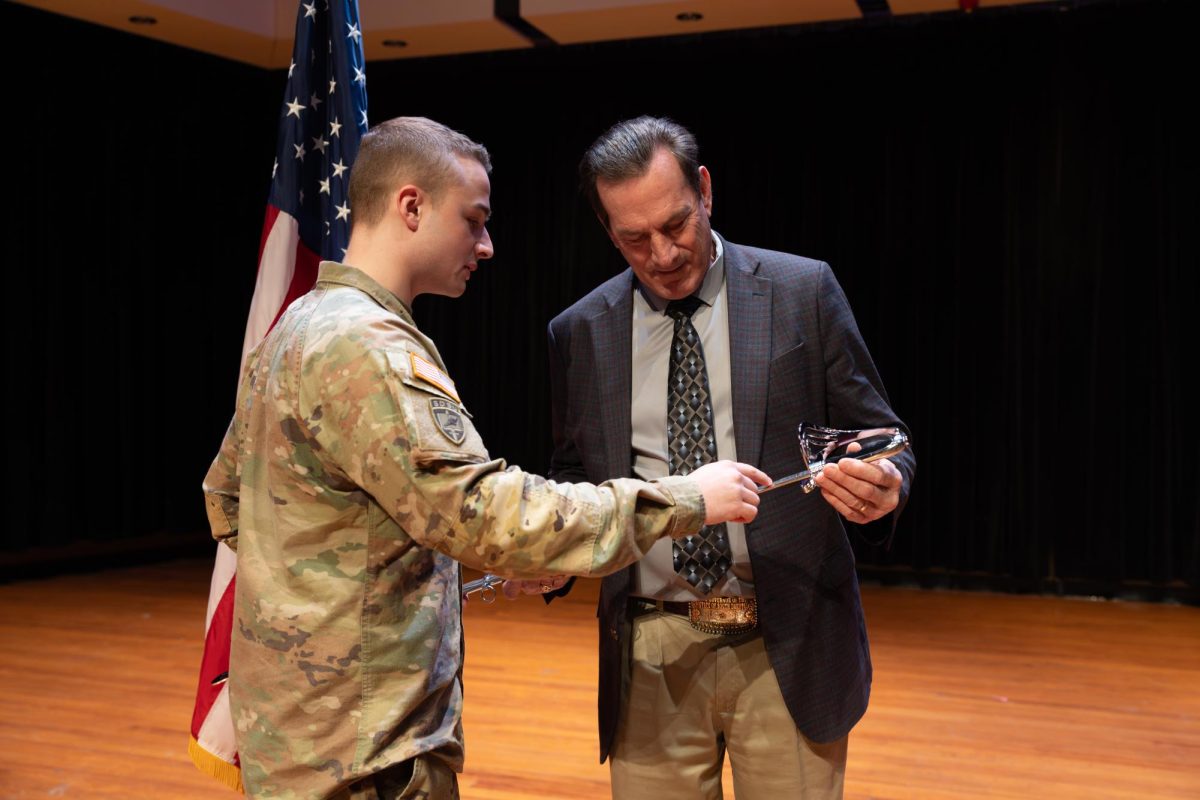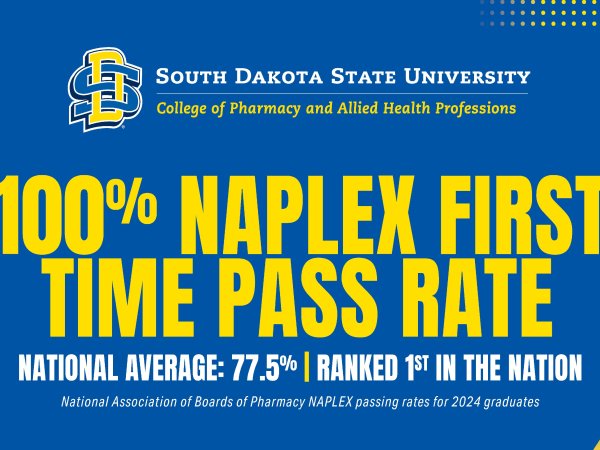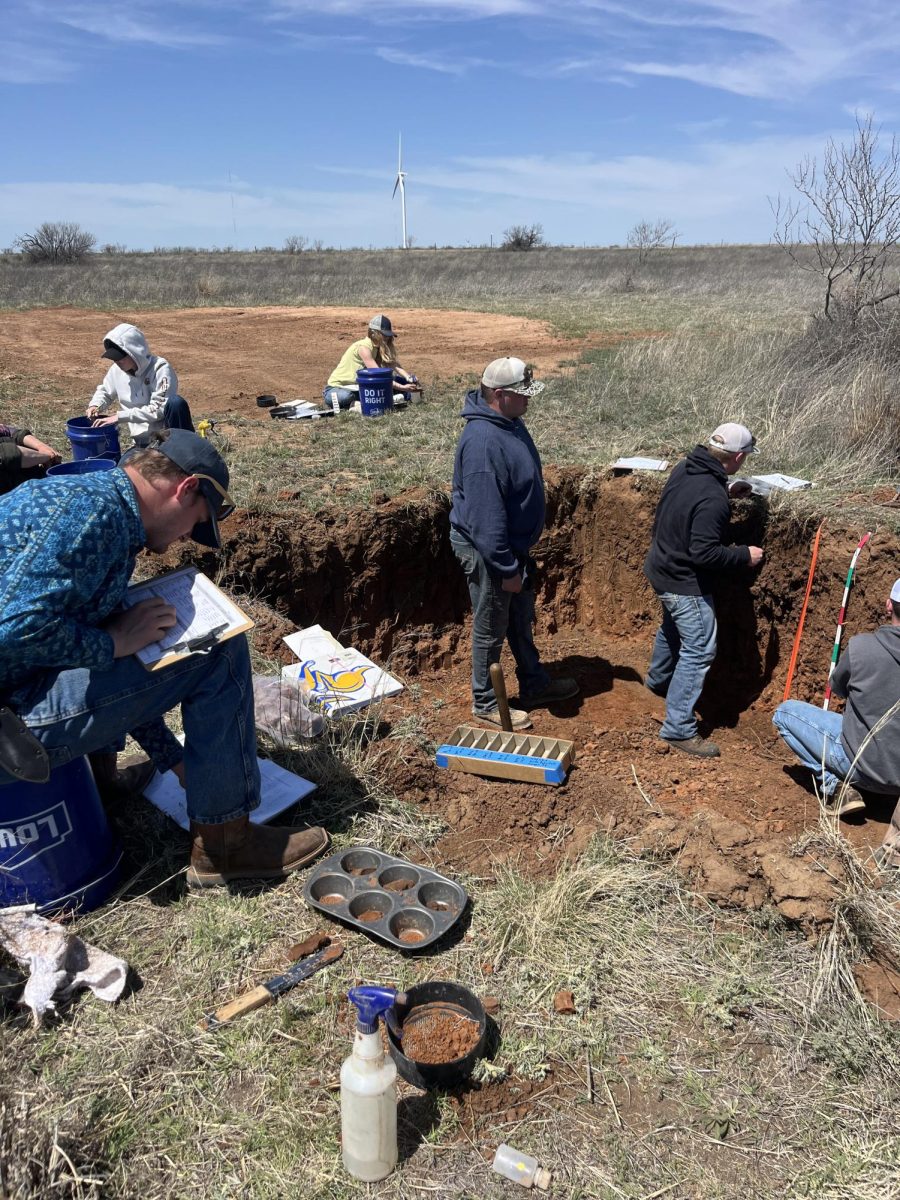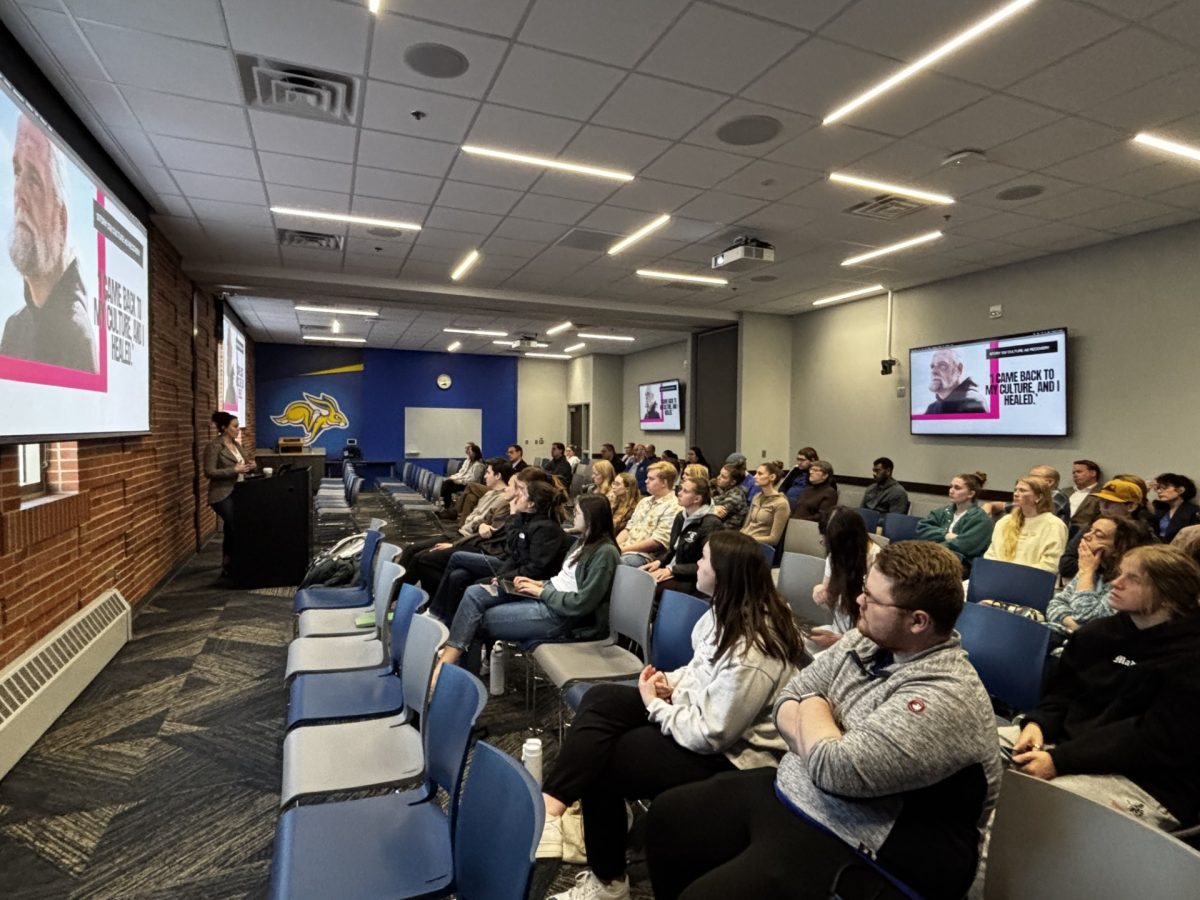Larry Rhoden became South Dakota’s governor in January after former Gov. Kristi Noem left to be the United States Secretary of Homeland Security with the Trump administration. He is the 34th person to serve as South Dakota’s chief executive. The longtime legislator is currently on his Open for Opportunity tour. Rhoden stopped in Brookings on Tuesday to join the ROTC Governor’s Day Awards and take a tour of the SDSU campus. Rhoden and his Lt. Gov. Tony Venhuizen sat down with the Collegian to discuss issues coming out of Washington and how they might affect students and the larger South Dakota community.
Q: Last week the Board of Regents raised tuition 2.9%. What do you think about this increase and do you see this happening more in the future?
A: [Rhoden] Well, if I had a crystal ball I’d tell you, but with an economy such as it is, we don’t know from month to month what our revenue stream will do. In South Dakota, we do government on the cheap, and we are very much at the mercy of the economy and our revenue stream, sales tax specifically. So, it’s really hard to predict. Especially at this period in time, because the years after COVID, our economy was just going gangbusters, and now we are getting back to reality as some of that has worn off. The waters are still trying to find its stagnant mark where we come out of this turmoil created from COVID.
[Venhuizen] We’re lucky though. We had several years of no tuition fee increase so it has been, overall, a pretty good period of affordability.
Q: The concealed carry bill was passed, but our Students’ Association voted to oppose it. Tell me why you think it was a good bill to sign?
A: Well, I think for a number of reasons. When I was in the [state] Legislature, I carried that years ago and there was opposition from some of the student body at that time. Now this was a different bill. This had additional requirements, additional safeguards. The student has to meet a certain criteria and they have parameters, and they have to have an enhanced concealed carry permit. I went through that course. It’s pretty extensive. Bear in mind, we are dealing with adults. Just because they happen to be at a college campus, that’s not reason enough to fetter their Second Amendment right. So, I think it was very reasonable and very thoughtful and I think it’s the right thing to do, so I signed it.
Q: Could you tell us a little bit about your vision for South Dakota during your time in office?
A: Well, my time in office has been three months. But early on, I thought it through, and the three words that always came to mind were strong, safe and free. That we have a strong state, we are going to keep it strong, take steps to make it stronger. Safe – people want to be safe in their own homes, so we want to take steps to make South Dakota safer. I think one of the first things I did, I think the first week I was in office, is I signed an order for a new squad of Highway Patrol in the city of Sioux Falls. Crime rates have been going up in Sioux Falls, and they haven’t increased their workforce on the Highway Patrol in the Sioux Falls area for a number of years. So we added a squad to that area. And free, I think COVID years proved we are the freest state in the nation. The only state that didn’t close businesses and we were rewarded for that. We demonstrated to a nation, what honoring our God-given rights and understanding that our rights, liberties and freedoms are given to us by God, not by government. Staying true to those principles instead of making decisions based in fear paid dividends.
Q: You talk about more Highway Patrolmen in Sioux Falls, how else have you been communicating with law enforcement across South Dakota?
A: It’s kind of interesting. I have a brother, my older brother is a deputy sheriff in Meade County, and one of my sons, my second oldest son, is a deputy sheriff in Pennington County. I think it also sets South Dakota apart, the respect that we show for law enforcement and the support of our law enforcement. When other cities were rioting and local governments wringing their hands and calling meetings and deciding that the best solution would be to defund the police, as absolutely ridiculous as it sounds, that’s what they were doing in some major cities. In South Dakota, we went the opposite direction. We show respect for our law enforcement. We support them. We try to show them respect in the laws we pass and the support we give them.
Q: Tariffs have been in the news a lot lately. How do you think these tariffs are going to affect South Dakota? Do you think they will affect us a lot or won’t see much of the effects of those?
A: Well, that also would require a crystal ball. But, I will say this, because there’s been a lot of wringing of hands and chest beating going on from the minority party. But all I know is what I know. Seven years ago, when Trump did tariffs, we went through this whole hand wringing back then, and it worked out pretty well then.
Trump is a real estate guy, a New York real estate guy, and he understands the art of the deal. Even an agriculture stance, that’s kind of in the crosshairs; Even with that, obviously I’m concerned, but, first of all, he has a proven track record and we know he’s a good negotiator. I have a lot of faith in him, still, that we’ll come out of this on the better end of the deal. Beyond that, I was telling a group just the other day, sit and listen to the news, listen to Trump’s speech – and this had been going on for a few weeks – the hand wringing about it. I caught myself thinking, this is the first time in decades – I wasn’t that young of a man that I remember when our national debt first hit a trillion dollars. I think I was an adult, or close to it.
And I thought back then, ‘Oh my gosh, we’re in trouble.’ Now we have an annual budget deficit that’s $2 trillion and we’re $30 trillion in debt. But right now is the first time in decades that I’ve felt like there’s a light at the end of the tunnel. We have a president that’s actually going to do more than just beat his chest. We know we aren’t going to see a solution coming out of Congress. How many years have they beat their chest and talked about the big game and nothing happened? The only thing that happens is they pass another continuing resolution to raise the debt ceiling another trillion dollars or whatever.
Q: Could you explain more about your stance on how to respond to that national debt?
A: [Rhoden] From my perspective, I think, it’s just like I said, there has not been a plan, and the farther we run in, the more hopeless the situation becomes. You reach a point where our total GDP, if it takes the entire GDP to pay the interest on the debt, then you are in forfeit.
[Venhuizen] We are going to have to recognize as a state that the flows of federal money coming into the state are going to have to slow down. And we are going to have to adjust to that, and people don’t like that, but it’s just not sustainable if it doesn’t happen. We’re starting to see that now, and you already have people saying ‘Well, can’t you backfill this or backfill this.’ Well, maybe certain things you can, but a lot of these we’re just going to have to learn to adjust, cause the money isn’t there.
[Rhoden] And we are in a different situation in South Dakota, extremely different than like Minnesota, for a number of reasons. The one I’ll mention is just the way we’ve handled federal programs. Through COVID, we were the only state in the Union when president – and President Trump was still president at the time, that offered extended unemployment benefits. South Dakota was the only state in the Union, Governor Noem wrote Trump a letter saying ‘Thanks Mr. President, but no thanks. Our people want to go to work.’ We turned down those additional benefits. Same with a lot of federal programs that other states were the hogs at the trough, bellying up, and South Dakota turned them down. So, we are not as vulnerable, we’re not as dependent on those federal handouts as many other states are. We don’t stand to lose as much as other states do.
Q: You’ve mentioned wanting to increase communication between the tribal councils, are there any ways you plan on doing that?
A: Well, that is at the core of any relationship. Communication, open, honest communication. Whether that’s the tribes, or law enforcement or your military. Having a solid line of communication and ability to communicate and get along and have adult conversations and understand the position that they are coming from, I think that’s the root to success, the secret to success in all relationships. And certainly the tribe – I thought about that when we were traveling up there and traveling back home, just the difference. It’s no different than any relationships, whether it’s with your wife, your neighbor or your friends. I remember growing up and as I got to be an adult and young man – my brother’s six years older than me, and he’s on a ranch a couple miles away. I’d notice that through the year we’d have little rifts, and little rivalries when we weren’t spending a lot of time together. Then we’d get into fall work, when we’re working together, we’re sorting cattle, driving cattle and teaming up and working together, and I’d notice through the years, the more I work with my brother and was rubbing shoulders with him, the better I got along with him. Because we were communicating on a regular basis. The less we communicated, the more strained our relationship became. I think life is a lot like that. We need to stay in touch and we need to communicate and work together on issues and I think it keeps a mutual line of benefit going.
Q: We hear you can weld, so how much time would it take to weld a full-size statue of a jackrabbit?
A: [Rhoden chuckles] I think you mistake my welding with western artist John Lopez. He’s an artist, I’m a welder. I could make you a branding iron of a SDSU and you could then brand a jackrabbit.
Q: Is there anything else you would like to add? Any specific message you want to send to students while you are in Brookings?
A: Well, they represent the future of South Dakota and they shouldn’t lose track of that. We are counting on them to keep our state strong, safe and free.






















